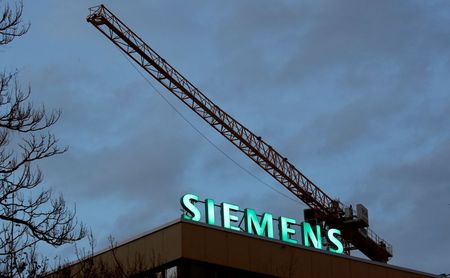Siemens loses £512m as it gears up for full Russian exit after 170 years

German tech firm Siemens revealed this morning that it had taken a €600m (£512m) hit in the second quarter
following Russian sanctions and confirmed that it would be leaving the market after 170 years.
Following the invasion of Ukraine in late February, Siemens chief executive Roland Busch said it would be pausing all business in the region, with the conflict being framed as a “turning point in history”.
Although the Russian market contributes about one per cent of Siemens’ annual revenue, sanctions have severely chipped at the industrial manufacturer’s financials.
Not only was net income halved to €1.21bn in its quarterly results, missing analysts’ forecasts of €1.73bn, but sanctions in Russia and the geopolitical uncertainty have already cost the company €600m.
The hefty losses were driven by sanctions and other charges recorded in the company’s train-making mobility business, which has been a significant part of its work in Russia.
Siemens employs around 3,000 people in Russia and has a longstanding history in the country.
Stating that it was “not an easy decision”, Busch confirmed that Siemens would be pulling all services from the region moving forward.
The company said in a statement: “Siemens will exit the Russian market as a result of the Ukraine war. The company has started proceedings to wind down its industrial operations and all industrial business activities.”
“We’re all moved by the war as human beings. And financial figures must take a back seat in the face of the tragedy. Nevertheless, like many other companies, we’re feeling the impact on our business”, Busch said.
In more bad news, the company warned that further costs would be incurred as a result of these measures, including unwinding legal entities, revaluation of financial assets and restructuring costs.
However, it’s not just Siemens that’s feeling the sting of a Russian exit. Last month, the world’s biggest brewer Ab InBev said it would be taking a $1.1bn hit because of its departure.
The maker of Budweiser and Becks announced plans to exit the country by selling its stake in a Turkish joint venture that serves the region.